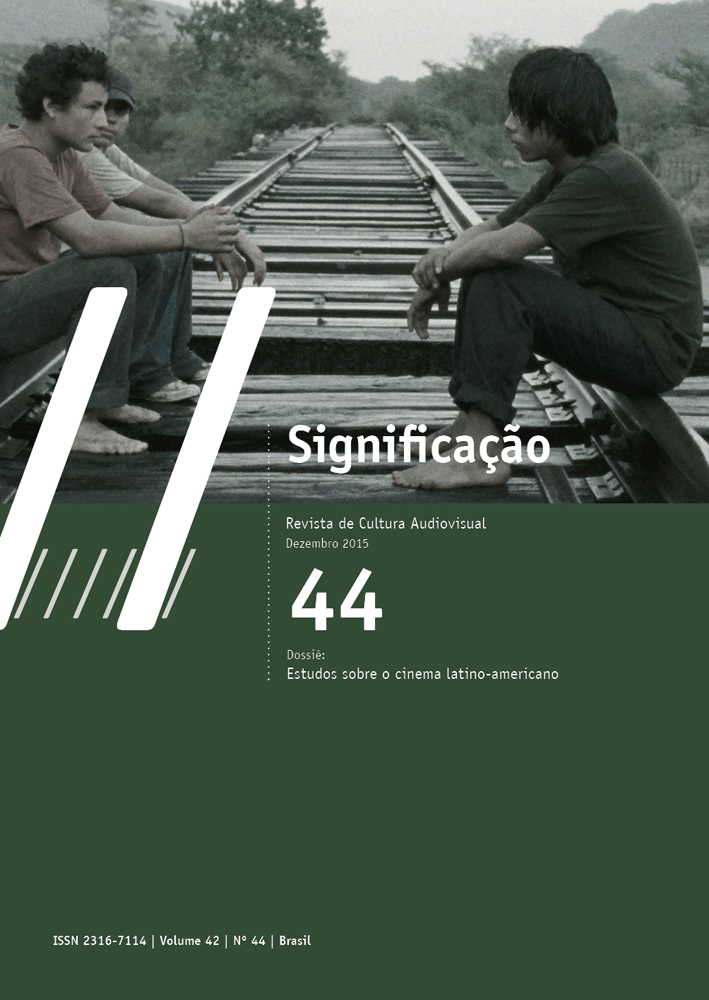Paratexts, programs of action?
DOI:
https://doi.org/10.11606/issn.2316-7114.sig.2015.103655Keywords:
Cibercultura, Comunicação, Game Studies,Abstract
This paper aims at questioning the way external, albeit related, elements of a medium act upon its experience. Back in the 1980s, Gérard Genette produced a treatise regarding the forms through which titles and prefaces framed the textual experience of a book. American game studies theorist Mia Consalvo appropriated these paratexts in order to discuss collaborative content originated from the experience of video games. We inquire, thus, whether such external texts are merely marginal to the experience of a game – props, intermediaries – or if they are effectively capable of exerting agency upon the behavior of players, if they have the power to mediate relationships, suggest programs of action in a world where its very existence depends crucially on these, to make sense.
Downloads
References
AARSETH, E. “Nonlinearity and literary theory”. In. LANDOW, G. (Ed.). Hyper/Text/Theory. Baltimore: Johns Hopkins University Press, 1994.
______. Cybertext. Perspectives on ergodic literature. Baltimore: Johns Hopkins University Press, 1997.
CONSALVO, M. Cheating. Gaining advantages in videogames. Cambridge: The MIT Press, 2007.
ELDER-VASS, D. “Searching for realism, structure and agency in Actor-Network Theory”. The British Journal of Sociology, v. 59, n. 3, 2008.
FALCÃO, T. “Estruturas de agenciamento em Mundos Virtuais: Mundos ficcionais como vetores para o comportamento social in-game”. In. ANDRADE, L. A.; FALCÃO, T. (Orgs). Realidade sintética. Jogos eletrônicos, comunicação e experiência social. São Paulo: Scortecci, 2012.
______. “Camadas relacionais de prescrição: Rascunhos para uma metodologia de análise dos jogos eletrônicos”. Esferas. v. 1, n. 2, 2013.
GALLOWAY, A. Gaming. Essays on the algorithmic culture. Minneapolis: University of Minnesota Press, 2006.
GENETTE, G. Paratexts. Thresholds of interpretations. Cambridge: Cambridge University Press, 1997.
GERRIG, R. J. Experiencing narrative worlds. On the psychological activities of reading. Boulder: Yale University Press, 1993.
HUTCHEON, L. A theory of adaptation. New York: Routledge, 2006.
JENKINS, H. Convergence culture. Where old and new media collide. New York: New York University Press, 2006.
KAFAI, Y. B.; HEETER, C.; DENNER, J.; SUN, J. Y. (Eds.). Beyond Barbie & Mortal Kombat: New perspectives in gender and gaming. Cambridge: The MIT Press, 2008.
KRZYWINSKA, T. “World creation and lore: World of Warcraft as rich text”. In. CORNELIUSSEN, H. G.; RETTBERG, J. W. (Eds.). Digital culture, play, and identity. A World of Warcraft reader. Cambridge: The MIT Press, 2009.
LATOUR, B. “On technical mediation. Philosophy, sociology, genealogy”. Common Knowledge, v. 3, n. 2, 1994.
______. Reassembling the social. An introduction to Actor-Network Theory. Oxford: Oxford University Press, 2005.
LUNENFELD, P. The digital dialectic: New essays on new media. Cambridge: The MIT Press, 1999.
MACCALLUM-STEWART, E.; PARSLER, J. “Illusory agency in Vampire: The Masquerade – Bloodlines”. Dichtung-Digital – Journal für Digitale Ästhetik, v. 37, n. 1, 2007.
MITCHELL, W. J. T. What do pictures want? The lives and loves of images. Chicago: University of Chicago Press, 2005.
MURRAY, J. Hamlet no holodeck. O futuro da narrativa no ciberespaço. São Paulo: UNESP, 2003 (1997).
SIMMEL, G. Sociology. Inquiries into the constitution of social forms. Boston: Brill, 2009 (1908).
TAYLOR, T. L. Play between worlds: Exploring online game culture. Cambridge: The MIT Press, 2006.
Downloads
Published
Issue
Section
License
Copyright (c) 2015 Thiago Falcao

This work is licensed under a Creative Commons Attribution-NonCommercial 4.0 International License.
Authors who publish in this journal must agree with the following terms:
- Authors keep their copyrights and grant the journal first time publication rights, having their articles simultaneously licensed under the Creative Commons Attribution License, which allows sharing texts with authorship recognition and first publication on this journal for non-commercial purposes.
- Authors are allowed to make additional contracts, for a non-exclusive distribution of the article’s version published on this journal (e.g.: publishing in institutional repositories of articles or as a book chapter), with authorship recognition and first publication on this journal.
















